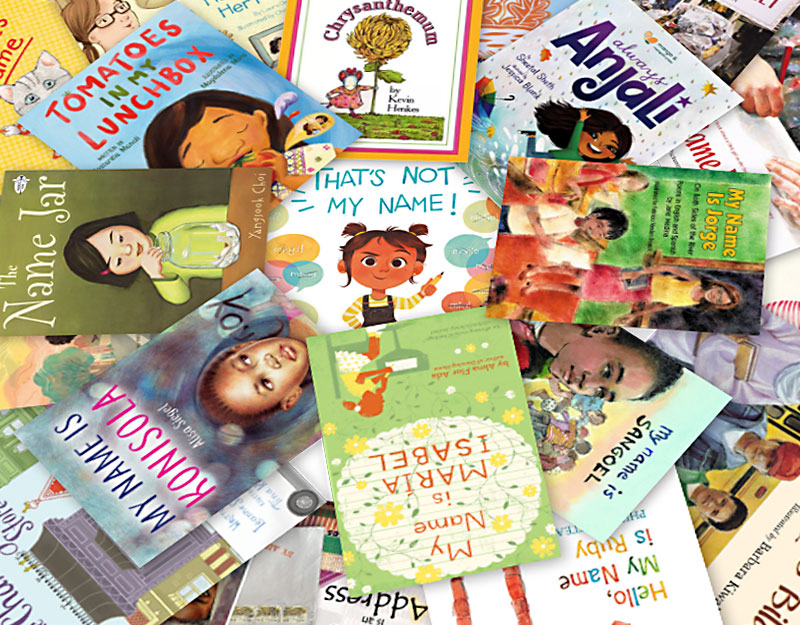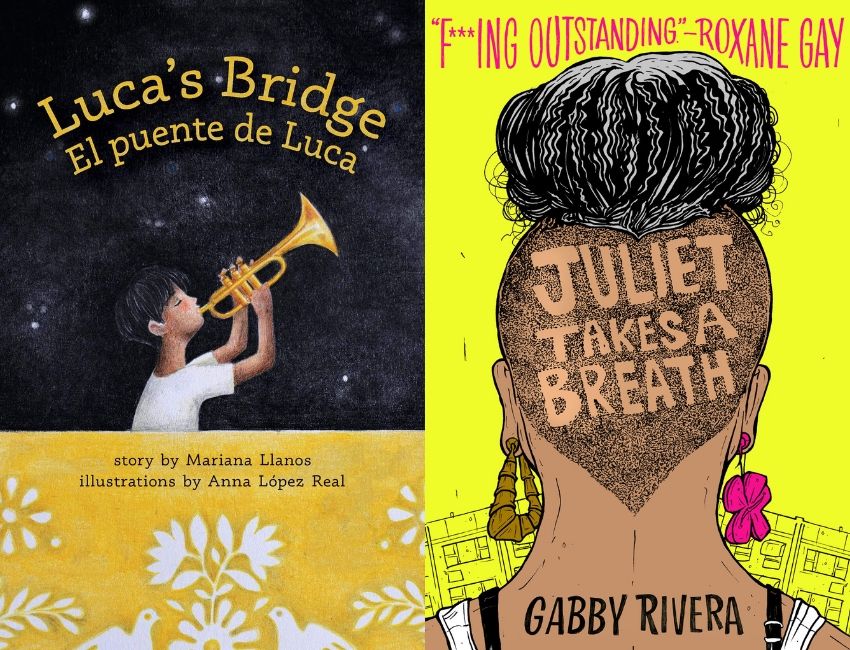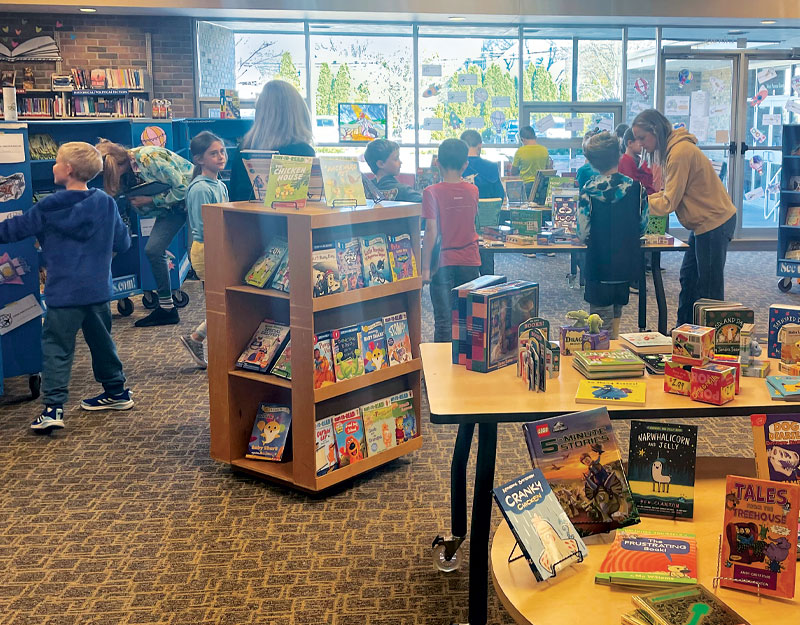Inside Out & Back Again
- Introduction/Supplement to the Vietnam War. For many of today’s youth, the Vietnam War seems a story of the distant past. Yet the challenges, polarizing response, and lessons learned from that war continue to shape American politics, military missions, and popular sentiment today. Use the links listed in the Further Explorations section below, as well as any primary source documents to which you may have access, to provide factual context about the war for students. Use Inside Out & Back Again, as well as other narrative texts (see, for example, the books listed in the Further Explorations section below) to provide the human context. Since war is a particularly sensitive issue, especially the Vietnam War, make sure students are exposed to diverse perspectives and experiences concerning the war to help them develop as rich an understanding as possible.
- The “Rules” of English Grammar. Learning the rules of English language is one of the challenges Hà faces while attending school in Alabama. But how solid are these so-called “rules”? Hà points out the many inconsistencies and contradictions in the English language that make it difficult to learn as a nonnative language. Divide the class into small groups, and have them divide a page into three columns. Have them list all the English grammar rules they know in the first column, any exceptions to those rules in the second column, and any examples of each in the third column. After studying the sheet and discussing the complexities of the language, encourage them to come up with creative, effective ways of learning all of these confusing rules and exceptions. They might create a class blog, wiki, or glog. Or, they might want to create a class book, illustrating examples of various rules, like in Lynn Tress’s Eats, Shoots, and Leaves. They might even create their own songs and videos using the Schoolhouse Rock collection as inspiration. Make sure to keep in mind the grade level expectations for grammar usage as students do this activity.
- Celebrating the New Year. Inside Out & Back Again begins and ends with Tết, the Vietnamese New Year, with details about the food, customs, and beliefs surrounding the holiday. Add Tết to the cultural new year festivities that your classroom celebrates, and make sure to highlight how Hà reflects on how her life has changed—the ups and downs—since the last Tết. Use the website links listed in the Further Explorations section below to conduct research about the holiday. Have students reflect on how their lives are similar and different to what they were a year ago, and what their hopes and wishes for the upcoming year will be.
- Verse Novels as Mentor Texts. Thanhha Lai chose to chronicle Hà’s experience through free verse poetry rather than prose. What are the pros and cons of doing so? Have students try writing a series of connected poems about an event in their lives. Using Inside Out & Back Again as a mentor text, help students focus on elements such as Lai’s figurative language, purposeful line breaks, white space, poem titles, and chapter themes. Guide students through the writing process as they create their own stories-in-verse, and celebrate their work with a publishing party at the end of the project.
- The Plight of Refugees. Across the world and for many political reasons, people are sometimes forced to leave their homeland and seek refuge in another country. Encourage your class to inquire into current refugee populations across the world, why they were forced to leave their countries, and how they are being treated in the country where they currently live. Refer to the websites listed in the Further Resources section below for help with the research. Students might even learn about refugee populations in their own states or regions, such as the Hmong people in the Midwest or Somali refugees in New England. If there is a feasible way for students to provide aid, encourage them to organize themselves and work toward that goal.
- Addressing Bullying. Hà describes the bullying she endures as a student in the mid-1970s. However, bullying has only become a concern of national prominence in recent years. Discuss this issue with students, but be very sensitive and aware of how they respond to this topic, as bullying may be something very personal in their own lives.
- A moving multi-genre collection of intimate perspectives of diverse facets of war.
Deitz Shea, P., & Weill, C. (2003). Ten mice for Tết. Ill. by T. Ngoc Trang. Embroidered by P. Viét Đinh. San Francisco, CA: Chronicle Books.
- A breathtaking picture book about mice who prepare to celebrate Tết, the Vietnamese New Year.
- A collection of six traditional tales, well known from Vietnamese folklore.
Nhuong, H. Q. (1986). The land I lost: Adventures of a boy in Vietnam. New York: HarperTrophy.
- True stories from the author about growing up in a tiny village in Vietnam.
Nhuong, H. Q. (1999). Water buffalo days: Growing up in Vietnam. Ill. by J. Tseng & M. Tseng. New York: HarperTrophy.
- A touching autobiographical account of the author’s childhood in the central highlands of pre-war Vietnam.
Tran, T. (2003). Going home, coming home/Vế Nhà, Thăm Quê Hương. Ill. by A. Phong. San Francisco, CA: Children’s Book Press.
- A bilingual picture book about a young girl’s first trip to Vietnam to visit her parents’ homeland and the relatives who live there.
Warren, A. (2004). Escape from Saigon: How a Vietnam War orphan became an American boy. Farrar, Straus, & Giroux.
- A stirring photo essay of a young boy’s childhood in a Vietnam orphanage and eventual adoption into an American family in Ohio.
- Jack discovers his voice while learning about great poets and mourning the loss of his beloved pet.
Creech, S. (2008). Hate that cat. New York: HarperCollins.
- In this sequel to Love That Dog, Jack continues to learn the power of poetry as he adjusts to a new pet.
Hesse, K. (1997). Out of the dust. New York: Scholastic.
- Written in free verse, this Newbery Award winning novel chronicles Billie Jo’s efforts to deal with family tragedy set in the Oklahoma Dustbowl during the Depression.
Myers, W. D. (2006). Street love. New York: Harper.
- A hip-hop style free verse novel in iambic pentameter about the star-crossed romance of two teenagers in Harlem.
Woodson, J. (2003). Locomotion. New York: Putnam.
- A poignant and energetic verse novel about a young boy’s learning to express the grief and family loss he has experienced.
Filed under: Poetry
About Grace Enriquez
Grace is an associate professor of language and literacy at Lesley University. A former English Language Arts teacher, reading specialist, and literacy consultant, she teaches and writes about children’s literature, critical literacies, and literacies and embodiment. Grace is co-author of The Reading Turn-Around and co-editor of Literacies, Learning, and the Body.
ADVERTISEMENT
ADVERTISEMENT
SLJ Blog Network
The Moral Dilemma of THE MONSTER AT THE END OF THIS BOOK
Cover Reveal and Q&A: The One and Only Googoosh with Azadeh Westergaard
K is in Trouble | Review
Fighting Public School Book Bans with the Civil Rights Act
ADVERTISEMENT








